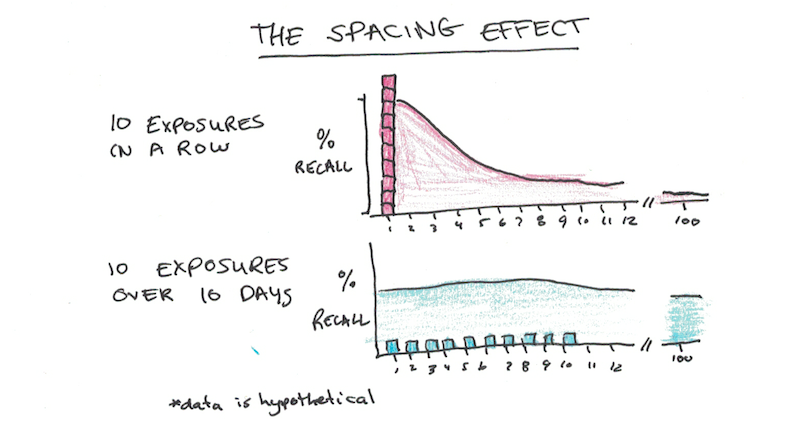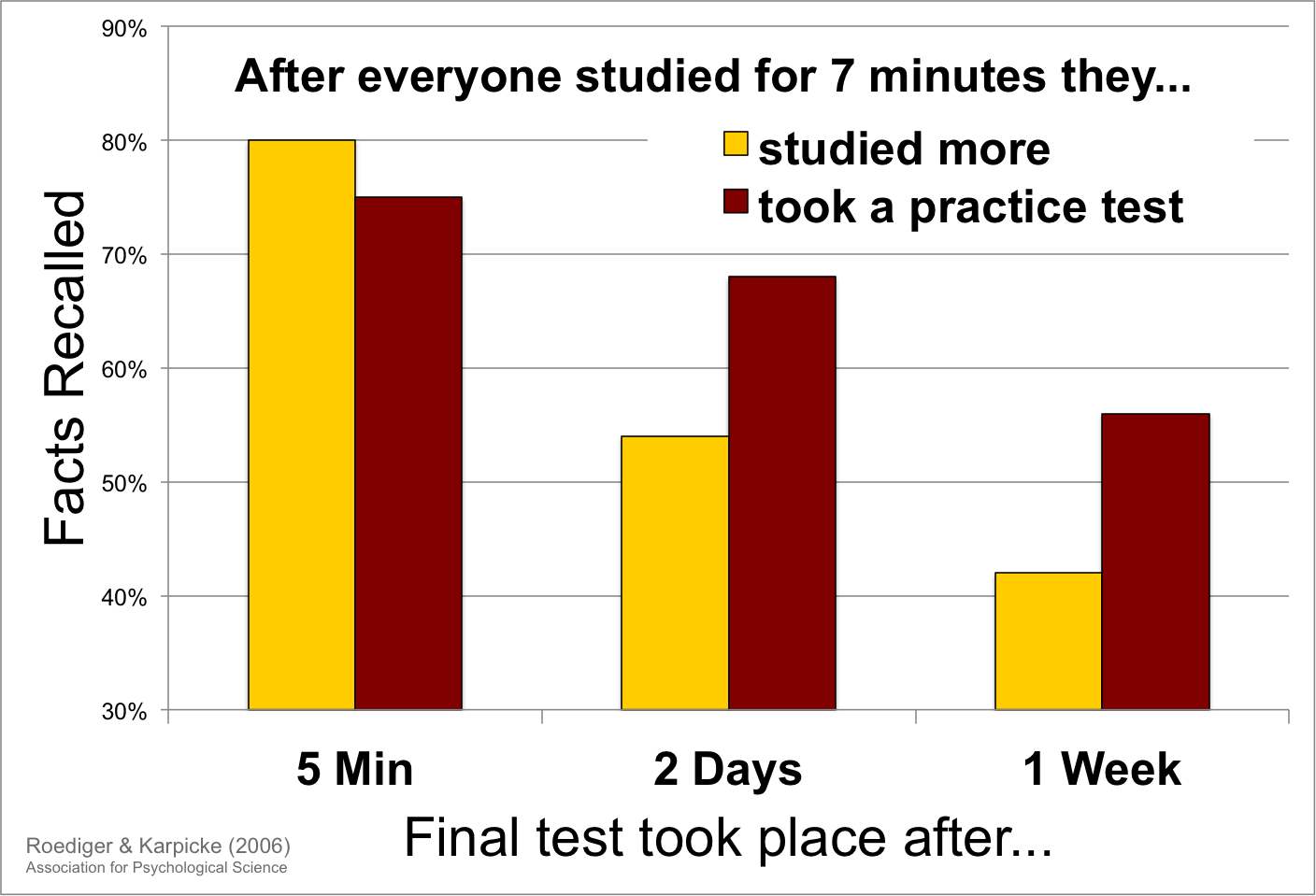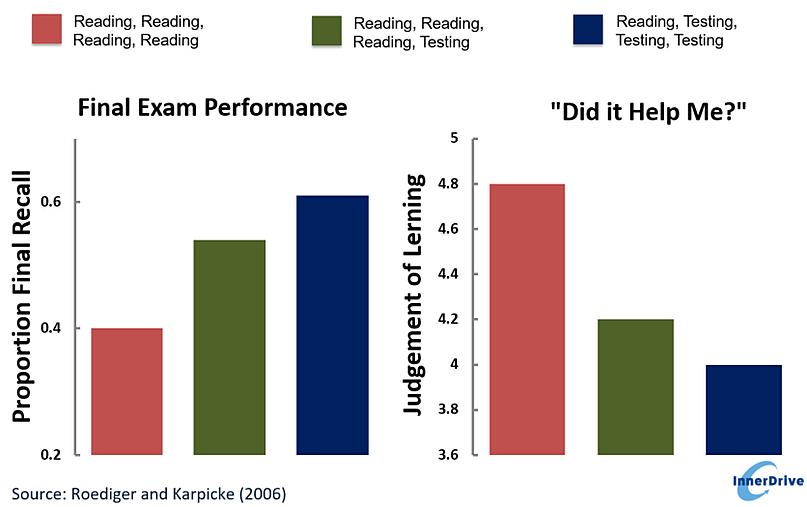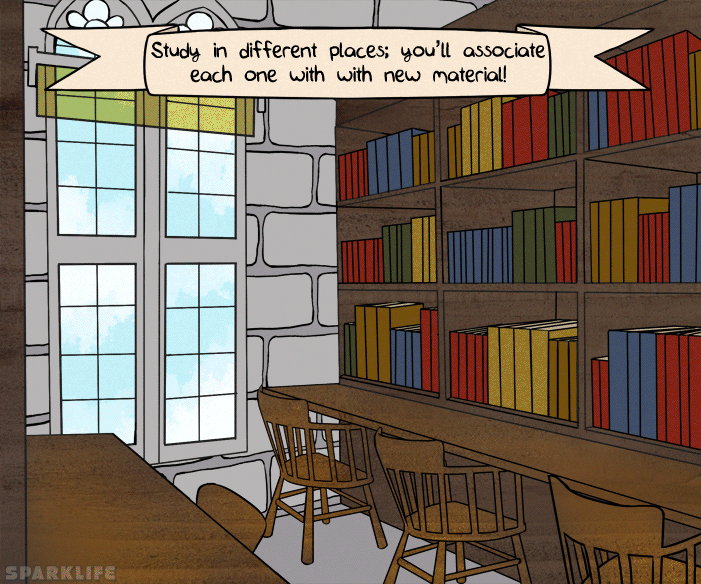Are you excited to be in a fun and interesting class? Trying your best to learn and understand material you need to know later? Or do you just want to do well on your exams? Whatever your learning goals are, here is a playlist of some study tips backed by cognitive science that are endorsed by WI+RE. Use them to your full advantage!
Space It Out
Hundreds of studies have shown that spacing, or spreading out study sessions with gaps in between, is far better for remembering the studied material than massing, or cramming as it is more commonly known. This is known as the spacing effect.

Check out this article to see how a study on how using spacing with flashcards was more effective than massing.
Here's an article explaining the research and delving deeper into other studies.
And finally, a video to break it all down and explain how you can incorporate spacing into your studying in the future!
Test Yourself
Many studies have also shown that testing yourself on content you've just read or watched actually helps you remember it way better than simply rereading or rewatching the material. This is known as the testing effect. One strong hypothesis about why it works is because testing yourself is a form of retrieval practice, or training yourself to recall something, which is the exact thing you need to do come test time!
Unfortunately, this is one of those counter-intuitive strategies that, while it works well, feels like it doesn't. Roediger and Karpicke (2006) found that while participants remembered information a lot better over the long term when they tested themselves compared to simply studying more, they judged the restudying to help them more than testing did.


Check out this study on how quizzes and multiple choice tests improved performance on tests compared to rereading.
Here are two plain English articles breaking down the testing effect.
And here's a video if that's your style!
Change It Up

You may have heard of the idea of having a single dedicated "study spot" that you do all your studying in. Maybe it's your desk at home or a library on campus. However, did you know that you might actually learn better if you switch it up and study in multiple different places? Smith & Rothkopf found that students who took an 8-hour statistics course over four days in four different classrooms did better on a test in a completely new environment compared to students who took the course in the same room. This might be useful for you if you like to study in places that are not the exam location, like most of us! Check out their study!
Think About It
Another helpful memory aid is processing the material deeply. This paper by Craik and Lockhart suggests a framework for human memory that stresses the importance of depths or levels of processing and predicts that the deeper information is processed, the longer it will be remembered.
Interestingly enough, this ties very tightly into understanding the material....
Understand It
One of my favorite ways to remember big concepts from class that has worked for me over the long term is simply trying to understand the material. Studies have shown that actually knowing how the material you're learning ties into what you already know enhances retention and recall of the material.
This study showed that when people actually understood passages they were reading in a larger context, they remembered the passages a lot better.
Get Some Exercise
Aside from being a valuable study break, exercise has been shown to have innumerable health benefits, one of which is improvements in memory!
Typical adults after the age of 50 experience a 1% decline in hippocampal volume per year. However, this study showed that older adults who walked for 40 minutes a day three times a week for a year actually showed a 2% increase in the volume of their hippocampus, a region of the brain critical for memory formation!
So, whether you're trying to memorize facts for an exam or people's birthdays for real life, getting some exercise will always help!